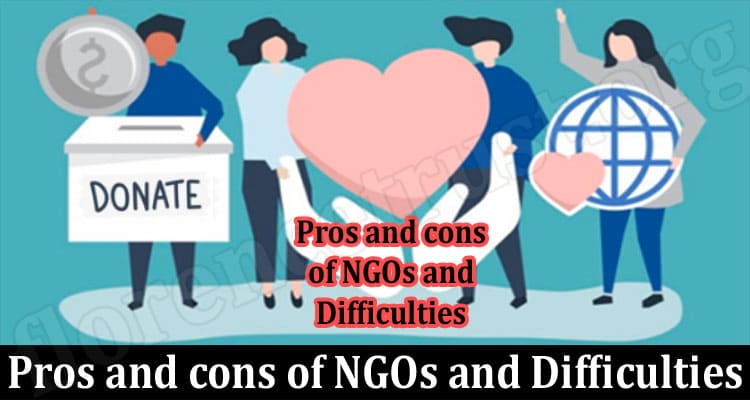Are you planning to set up an NGO or willing to join it? We suggest you check out Pros and cons of NGOs and difficulties. Stay tuned.
Are you willing to join an NGO? Have you ever thought about how these organizations work? A person must be aware of any information before becoming a part of such organizations.
NGOs are non-government organization that works in multiple ways in different fields. Here we have jotted down all the necessary information about the functionality of the association. All the fieldwork has some struggles and favours too. so read the complete article on the Pros and cons of NGOs and the difficulties
How are Non-Governmental Organizations Funded?
NGOs utilize a range of financing sources as quasi, including:
- dues for membership
- donations from individuals
- the purchase and selling of products and services
- grants
Non-profit, private groups that function from outside government authority are sometimes referred to as “non-profits.” Some NGOs are entirely run by volunteers, while others have paid personnel. The World Bank distinguishes two types of non-governmental organizations (NGOs):
- Operational non-governmental organizations (NGOs) focus on the formulation and construction of development projects.
- Advocacy NGOs seek to influence government policy by defending or promoting a specific cause.
Pros and cons of NGO:
Advantages:
- Tax-free status
Non-profit groups, unlike so many for-profit organizations, are tax-exempt, which is a major relief for an organization that mostly relies on donations.
- Grant application eligibility
Grants are almost always only available to non-profit groups, and for-profit organizations would be unable to apply. In addition, many charitable foundations have been extremely focused on assisting NGOs in achieving many of their goals by offering a variety of finances.
Disadvantages:
- Financial Outlay
Non-profits are no different than for-profit businesses in that they require funds to get started. Certain costs are paid before gaining tax deduction is a con out of Pros and cons of NGOs and difficulties.
- Proofreading and editing
Governments do not just approve NGOs’ requests for tax exemptions because they want to avoid paying taxes. As a result, there is a lengthy procedure. An NGO’s time and people are required for this procedure, which can be expensive for non-profit organizations.
What are the roles of non-governmental organizations (NGOs)?
NGOs serve a range of purposes. They provide skills and related expertise on numerous international topics to countries and international organizations (such as UN specialized agencies), often providing location features that governments do not have.
Talking about difficulties, in Pros and cons of NGO.
NGOs are currently confronted with several issues that they’re not always equipped with.
- Insufficient funds.
- There was no strategic planning.
- There is no networking.
- There is a lack of maintenance.
These are just a fraction of the numerous challenges the NGOs face while planning and doing the field stuff. We suggest you not skip any section and completely understand the concept.
Final verdict:
Many non-governmental organizations (NGOs) struggle to secure sufficient and consistent financing to carry out their missions. One of the most difficult aspects of this task is finding appropriate donors hence is a con out of the Pros and cons of NGOs and difficulties. NGOs frequently fail for various reasons, including an excessive reliance on foreign funding sources. Failure to exhibit worth and responsibility.
Also Read :- Is Jump Satoshi Token Scam {May} Detailed Information!


